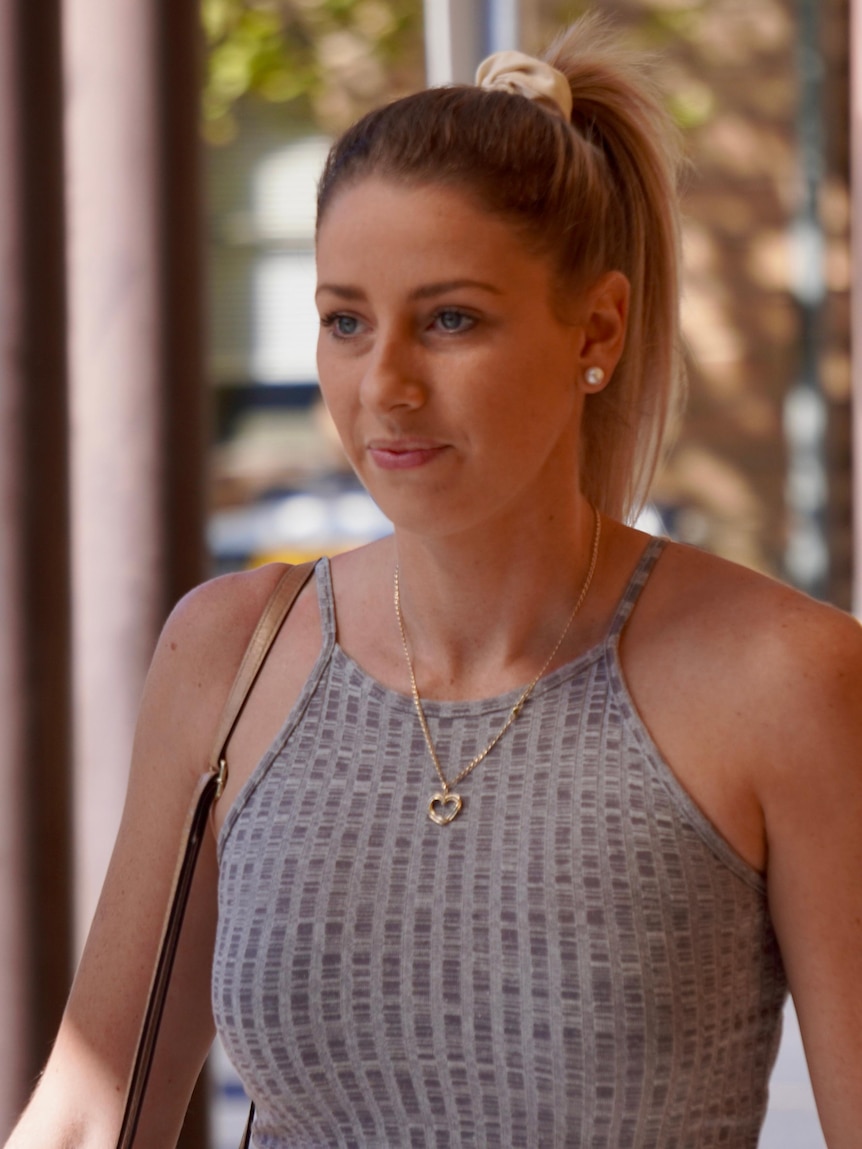Lawyers for nurses challenging South Australia’s COVID-19 vaccine mandate for healthcare workers want to again subpoena the state’s Chief Public Health Officer, despite the court hearing the case may never “proceed to final judgement” if the emergency declaration is revoked.
Key points:
- Two nurses want a judicial review of the vaccine mandate for healthcare workers under the state of emergency
- The government’s lawyer said a judgement might not be needed if the emergency declaration is revoked
- The nurses’ lawyer wants the judge to reconsider the Chief Public Health Officer giving evidence
Nurse and AFLW player Deni Varnhagen and another nurse – who lost their jobs because of the vaccine mandate – are seeking judicial review of the state government’s decision to extend the state of emergency which has kept the vaccine mandate in place for healthcare workers.
Their lawyers have previously argued that Police Commissioner Grant Stevens acted in excess of his power by mandating vaccines under the Emergency Management Act, which he administers as the state coordinator.
But today, counsel for the state government told the Supreme Court the case should not proceed if the state’s emergency declaration was revoked.
“If either the relevant direction is revoked or the declaration is either revoked or expires and is not renewed, it is futile for the court to go on to resolve the question of the validity of the direction,” Mike Wait SC told the court.
“Therefore, there are real questions as to the likely prospect that this matter would ever proceed to final judgement.
“As I understand public statements that have been made, it is proposed that there will not be an extension of the direction beyond June.”
Premier Peter Malinauskas wants it revoked by June 30.
Nurses’ lawyer calls for decision to be made
But Ms Varnhagen’s lawyer, Paul d’Assumpcao, told the court a decision on the validity of the vaccine mandate should proceed.
“A respondent to the judicial review proceeding is entitled to proceed on the assumption that the decision has legal force and effect until the court declares otherwise,” he told the court.
“It would not prevent the court from ruling on the application because, if the court allows the substantive application, that would give rise to a whole range of proceedings that my clients could institute because decisions that were previously assumed to have legal cause and effect have now been declared by a court not to have that cause.”
He said his clients could then commence proceedings for “recovery of wages and damages associated with the unlawful administrative action”.
“There’s a very important tipping point, we say, upon the court agreeing with our application,” Mr d’Assumpcao told the court.
Professor Spurrier could return to court
Mr d’Assumpcao also called for Justice Judy Hughes to reconsider her ruling sparing Chief Public Health Officer Nicola Spurrier from giving evidence.
He made an application for a fresh subpoena to be issued for Professor Spurrier to be cross-examined as she worked closely with Commissioner Stevens in managing the state’s pandemic response.
Professor Spurrier was mobbed by a group of anti-vaccine mandate protesters as she left that hearing.
Space to play or pause, M to mute, left and right arrows to seek, up and down arrows for volume.
Justice Hughes previously ruled there was no relevant evidence she could give but reserved her reasons for the decision to a later date.
“The quirk in this case is that if there’s a conversation that hasn’t otherwise been produced in writing then the only viable means by which we can present that information to the court is from the person who made – who spoke – in this case, that from our perspective most of that is Professor Spurrier,” Mr d’Assumpcao told the court.
“And it would otherwise be hearsay.
“Whilst the state coordinator can attest to the matters that Professor Spurrier said, he can’t attest to the truth of the assertion and that is the matter which must come from Professor Spurrier’s mouth.”
But Justice Hughes said “it did not matter what Professor Spurrier told the state coordinator” and that what mattered was what Commissioner Stevens “understood” and “considered appropriate” to make his decision.
Justice Hughes will make a decision on the application at a later date.
The matter returns to court later this month.
Space to play or pause, M to mute, left and right arrows to seek, up and down arrows for volume.
Loading form…




